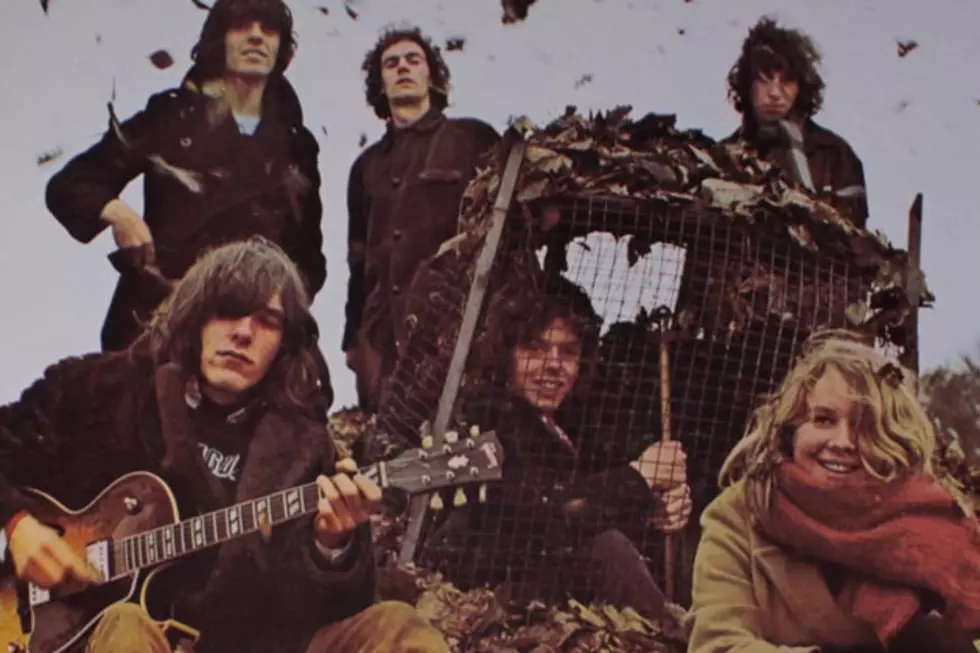
The Day Fairport Convention’s Bus Crashed, Killing Martin Lamble
As the summer of 1969 approached, the future looked bright for Fairport Convention, as their second album, What We Did on Our Holidays, expanded the band's audience with a more rock-inflected version of their folk sound. But an awful tragedy nearly destroyed the band just as all their hard work was starting to pay off.
In the early morning hours of May 12, 1969, as the group traveled back from a celebratory gig in Birmingham shortly after wrapping up work on their next album, their van veered off the road. In the aftermath of the crash, Fairport Convention would never be the same. The wreck killed drummer Martin Lamble (who was just 19 at the time) as well as fashion designer and magazine columnist Jeannie Franklyn, who'd been dating guitarist Richard Thompson. Thompson suffered a broken shoulder and bassist Ashley Hutchings was sent to the hospital with assorted serious injuries, while guitarist Simon Nicol, who'd been sleeping on the floor of the vehicle when it went off the road, escaped with a concussion.
"Our road manager and sound guy, Harvey Bramham, did most of the driving although I'd do a bit to relieve him. On this particular gig, he'd been feeling peaky all day, quite unwell," explained Nicol in a post on the Fairport Convention website. "I had a bad migraine so I wasn't in a seat; I was stretched out on the floor with a blanket over my head trying to sleep off this terrible headache. When I woke up, the van was doing things which didn't involve the wheels being in contact with the ground: when it stopped moving, I was the only one left. All the gear had gone out of the back and all the people had gone out through the windows and doors."
With the release of their next album mere weeks away, the members of the group had to decide whether they could even carry on as a unit. "That was a big watershed, I think. In the aftermath, we thought a lot about what to do, whether to call it a day. It had been fun while it lasted but it took a definite effort of will to continue," Nicol recalled. "It had given us a lot but now it had taken away a lot: was it worth it if it was going to cost people their lives?"
"We were totally fractured, in more ways than one," Hutchings told the Guardian in 2007. "It seemed like I was in hospital for months. When I woke up at the side of the M1, I thought I'd lost my sight. As it was, it was just that both eyes were terribly cut and bruised, and eventually, that improved. But I had a broken nose, broken cheekbone, a lot of head injuries, a broken pelvis, a bad ankle injury. All of those things took a long time to heal. People were asking us about the future, but we couldn't conceive of planning one."
"We were very traumatized," added Thompson. "And there was this feeling: 'Should we carry on? Has the stuffing been knocked out of us?' But eventually, we made a conscious effort. We got together and said, 'Yes, we are carrying on.'" As Nicol put it, "We all felt psychologically traumatized as well as being damaged physically. But by the time Ashley's face was back together and Richard's bones were healing, we'd decided to rebuild the band and carry on."
While Fairport Convention handled the last few bits of work to prepare their third LP, Unhalfbricking, for its July 1969 release, DJ John Peel hosted a benefit concert featuring Family, Pretty Things, and Soft Machine on May 25 to raise money for Lamble and Franklyn's families. While they soldiered on, the pall of the accident continued to loom; as Hutchings later told the Guardian, he can't even look at the cover of Unhalfbricking without thinking about the tragedy. "My memory of it is bound up with the terrible car crash. On the back cover we're all eating around a table. The shirt and the leather waistcoat I'm wearing are what I had on when the crash happened. I can clearly remember them being bloodstained," he explained. "You don't forget things like that."
In fact, although the group soon found a new drummer in Dave Mattacks and rebounded to create one of their most successful albums with Liege & Lief later that year, Hutchings was on his way out of the band. "I believe the crash hung over the band in unseen ways," Nicol mused. "I think it was one of the unspoken reasons for the next big change, when Ashley decided to leave the band later that year after we had recorded Liege & Lief and relaunched the band to some fanfare and acclaim. Whatever the upfront reasons about musical differences and wanting to concentrate on traditional material, I think the accident was the underlying reason why Ashley felt he couldn't continue with us."
Fairport Convention's lineup continued to change quite a bit over the years, but aside from a hiatus between 1979-85, they've continued to tour and record steadily. Nicol is the only original member left, but he wouldn't mind seeing the Fairport name continue after he's gone.
"I'd like Fairport to become the first band to be like a male voice choir, carrying on through changes of personnel but retaining its identity," he wrote on the band's site. "After all, no one bats an eyelid about a brass band playing on long after all the original members are gone. Why shouldn't there be a Fairport Convention in fifty or a hundred years?"
The Top 100 Albums of the '60s
More From Ultimate Classic Rock









